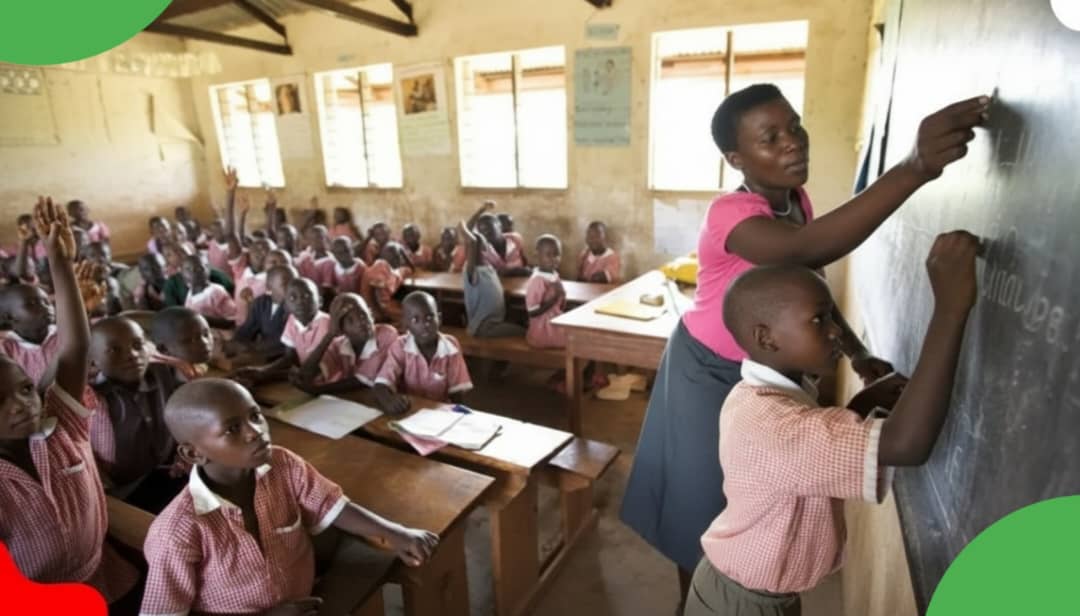How Much Does a Nigerian Teacher Really Earn in 2025?: I want to talk about something many people keep asking these days — how much do teachers in Nigeria really earn in 2025? Honestly, that question is not easy to answer because there is no single figure that fits all. The salary of a teacher in Nigeria depends on several things — like where you teach, who employs you, your qualification, and even the kind of school area you find yourself in.
Some teachers work in public schools where the job is stable, with pension and salary steps, while others teach in private schools where the pay can range from very small to very attractive. For example, a teacher might earn ₦70,000 in a local private school, while another teaching the same class in an international school in Lagos could earn over ₦1 million monthly. So, let’s check it properly and see how the salary of Nigerian teachers is really structured.
How Teacher Pay Is Decided in Nigeria
In Nigeria, teachers are mostly employed by either the government or private school owners, and the way they pay is not the same at all.
Let’s stay for example, a government-employed teacher in Lagos who is on Grade Level 08 might be earning a higher amount than another teacher on the same level in Bauchi or Zamfara. The reason is that every state government sets its own salary scale and promotion step.
Public school teachers are usually recruited through SUBEB (for primary schools) or Teaching Service Commissions (for secondary schools). The Federal Unity Colleges and the Federal Teachers’ Scheme also follow their own internal salary structures.
For private schools, the situation is different. Everything depends on the owner, the type of parents the school serves, and how much they charge as school fees. Let’s say a community private school in a small town charges ₦20,000 per term, their teachers cannot earn the same as someone working in a high-class school in Abuja or Lekki.
How Much Teachers Earn: Typical Monthly Salary Range (2025)
Let us check the normal salary range of Nigerian teachers in 2025. These are average monthly earnings before any deductions or bonuses.
Public Schools (State and Federal)
Entry-Level Teacher (NCE or B.Ed): ₦90,000 – ₦200,000
Mid-Career (5–12 years experience): ₦180,000 – ₦300,000
Senior Teacher / HOD / Vice Principal: ₦280,000 – ₦450,000+
Teachers working in bigger cities like Lagos, Abuja, and Port Harcourt usually earn at the higher end because those states have more funds. On the other hand, teachers in rural areas or smaller states often earn at the lower end.
Private Schools
- Low-Fee Community Schools: ₦60,000 – ₦120,000
- Mid-Tier Day Schools: ₦120,000 – ₦300,000
- Premium or International Schools: ₦400,000 – ₦1,200,000+
Some top private schools even add other benefits like medical insurance, feeding, exam bonuses, and paid training. That is why the salary gap between private schools is so huge — it all depends on where you work.
Allowances That Boost a Teacher’s Take-Home Pay
Apart from the main salary, teachers also earn through different allowances. I will list some of the common ones below:
- Responsibility Allowance: This is given to teachers who are class teachers, year heads, or HODs.
- Transport and Housing Allowance: Some schools provide a transport stipend or accommodation for teachers.
- Rural Posting Allowance: Some state governments offer this to attract teachers to remote areas.
- Exam and Club Stipends: Teachers who supervise WAEC or NECO exams or handle clubs like STEM, debate, or sports can get extra pay.
- Training Grants: Some well-paying schools sponsor teachers for workshops or courses to improve their teaching skills
Private schools may not always make deductions like NHF or pensions. Some of them do everything formally, while others just pay cash with no record. That is why I always advise teachers to ask for a written breakdown of their salary before accepting a job.
Cost of Living: The Real Pay Difference
Now, when we talk about teacher salaries, we also have to consider how expensive life is in different parts of Nigeria. Let us check some examples:
High-Cost Cities (Lagos, Abuja, Port Harcourt): Rent and transport here can finish half of your salary if you are not careful. A teacher earning ₦200,000 may still find it hard to save because of fuel and accommodation costs. That is why many teachers here take side jobs or give private lessons after school.
Medium-Cost Cities (Ibadan, Enugu, Kaduna, Benin): These places are better balanced. The pay might be smaller, but so are the living costs, making life a bit easier.
Rural Areas: Life is cheaper, but there are fewer extra income options. That is why allowances matter more in those places.
ALSO READ:
- 7 Best Countries Nigerians Can Study for Free in 2025
- 10 Common Mistakes Final Year Students Make and How to Avoid Them
- 10 Secrets for Freshers to Make Straight A’s in Higher Institution (Plus 2 Bonus Tips)
- Top 10 Universities in Nigeria with the Prettiest Girls in 2025
Final Thoughts
When I look at everything, I can say teaching in Nigeria is not just about money — it is more about passion and commitment. The salary has improved in some states, but not evenly. Your pay as a teacher depends on where you work, how long you have been teaching, and how much value you add to the school.
If you plan to become a teacher, I will say go for it if you truly love teaching. Over time, you can grow, gain experience, and move into better-paying schools. Teaching might not make you rich instantly, but it will always remain one of the most respected jobs in the country.
You can also join our WhatsApp channel by CLICKING HERE, we share helpful educational tips and news in the WhatsApp channel. Thanks.

